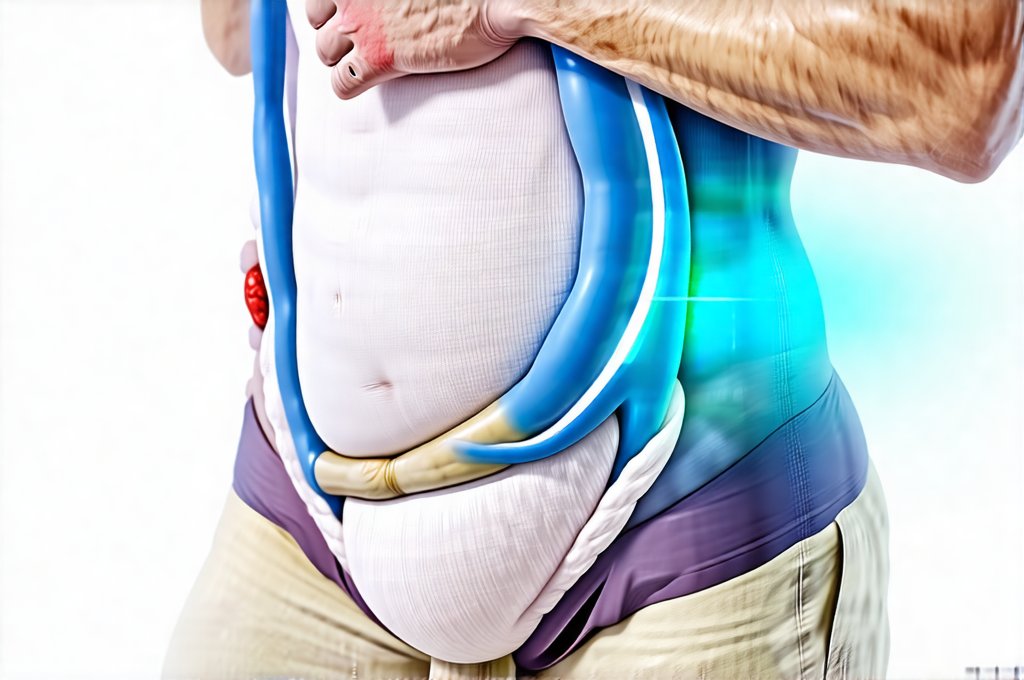Constipation, often dismissed as an uncomfortable inconvenience, is far more complex than many realize. While typically associated with difficulty in bowel movements, its ramifications can extend beyond the rectum, impacting digestive processes throughout the entire gastrointestinal tract. A significant, and frequently overlooked consequence of prolonged or severe constipation is a build-up—a ‘backlog’ if you will—of fecal matter within the colon. This isn’t simply about having infrequent stools; it’s about the accumulation of waste that fundamentally alters the internal environment of your digestive system, creating conditions ripe for increased gas production, particularly in the upper abdomen. Understanding this connection requires delving into the intricate interplay between gut bacteria, fermentation processes, and the mechanics of digestion itself.
The sheer volume and stagnation of fecal matter within a constipated colon provide an ideal breeding ground for bacterial overgrowth. Normally, healthy gut flora maintains a balanced ecosystem, efficiently processing food and minimizing gas production. However, when waste lingers for extended periods, certain types of bacteria – those that thrive in anaerobic (oxygen-free) environments – proliferate disproportionately. These bacteria aggressively ferment undigested carbohydrates and proteins, generating substantial amounts of gas as a byproduct. This isn’t the same as simply eating gassy foods; it’s about a change in microbial activity fueled by the backlog itself, ultimately leading to uncomfortable bloating and distension often felt higher up in the abdomen than typically expected with simple dietary gas.
The Colonic Ecosystem & Fermentation
The colon is not merely a passive holding tank for waste. It’s a dynamic ecosystem where trillions of microorganisms – collectively known as the gut microbiota – play crucial roles in digestion, nutrient absorption, and immune function. A healthy colonic environment facilitates efficient movement of fecal matter along its length, minimizing stagnation. However, when constipation sets in, this natural peristaltic motion slows down or becomes impaired. This creates pockets where waste accumulates, promoting bacterial imbalances. Fermentation—the breakdown of carbohydrates by bacteria—is a normal process within the colon, but excessive fermentation due to prolonged congestion leads to increased gas production and altered gut function.
This excess gas isn’t just hydrogen, carbon dioxide, or methane (although those are significant components). The specific gases produced depend on the types of bacteria dominating the colonic environment. A backlog encourages the proliferation of bacteria that produce larger quantities of these gases, particularly when they have access to undigested food particles. Furthermore, some bacterial metabolites produced during fermentation can contribute to visceral hypersensitivity—an increased sensitivity to pain and discomfort in the gut, exacerbating the feeling of bloating and abdominal pressure. The longer the backlog persists, the more deeply entrenched this microbial imbalance becomes, creating a vicious cycle where constipation perpetuates gas production and vice versa.
The composition of your diet significantly impacts this process. Diets low in fiber contribute to slower transit time and increased risk of constipation, providing more opportunity for fermentation and gas build-up. Conversely, diets rich in resistant starch – found in foods like cooked and cooled potatoes, oats, and legumes – can promote a healthier gut microbiome and improve bowel regularity. However, even with a healthy diet, pre-existing conditions or lifestyle factors can disrupt the colonic ecosystem, increasing susceptibility to constipation and its associated gas production.
Impact on Upper Abdominal Pressure & Discomfort
The sensation of upper abdominal gas isn’t always due to gas originating in the stomach or small intestine. The colon travels extensively through the abdomen, arching upwards and across the body. When a significant backlog develops in the descending colon (on the left side) or the splenic flexure (the bend between the transverse and descending colon), it can physically press against adjacent organs like the stomach and spleen. This pressure mimics the sensation of upper abdominal bloating and gas, even though the actual source is lower down. This explains why some individuals experiencing constipation report discomfort that feels more like indigestion or heartburn than typical flatulence.
The physical distension caused by a fecal backlog also impacts diaphragmatic movement—the natural expansion and contraction of the diaphragm during breathing. A full colon can restrict this movement, leading to shallow breathing and potentially exacerbating feelings of pressure and discomfort in the chest and upper abdomen. Furthermore, the vagus nerve – which connects the gut to the brain – is highly sensitive to changes in abdominal distension. Activation of the vagus nerve by a bloated colon can trigger signals that contribute to nausea, anxiety, and even panic attacks, compounding the physical symptoms with psychological distress.
The sensation of gas isn’t always about actual gas volume; it’s often about visceral perception—how your brain interprets signals from the gut. A constipated colon, with its altered microbial activity and physical distension, heightens this perception, making individuals more sensitive to even normal amounts of intestinal gas. This can result in a heightened awareness of abdominal discomfort and a tendency to attribute symptoms to excessive gas production when the underlying issue is constipation itself.
Dietary & Lifestyle Adjustments for Relief
Addressing constipation backlog requires a multifaceted approach that combines dietary modifications, lifestyle changes, and – if necessary – medical intervention. The goal isn’t simply to evacuate the existing backlog, but also to prevent future accumulation by restoring healthy bowel function. Here’s a step-by-step guide:
- Increase Fiber Intake: Gradually increase your intake of fiber-rich foods like fruits, vegetables, whole grains, and legumes. Aim for 25-30 grams of fiber per day. Introduce fiber slowly to avoid exacerbating bloating initially.
- Hydrate Adequately: Water is essential for softening stool and facilitating its passage through the colon. Drink at least eight glasses of water daily.
- Regular Exercise: Physical activity stimulates intestinal motility, promoting regular bowel movements. Aim for at least 30 minutes of moderate-intensity exercise most days of the week.
- Probiotic & Prebiotic Foods: Incorporate probiotic-rich foods like yogurt and kefir into your diet to support a healthy gut microbiome. Prebiotic foods (like onions, garlic, and bananas) provide nourishment for beneficial bacteria.
It’s important to note that quick fixes – such as laxatives – can sometimes worsen the problem in the long run by creating dependence and disrupting natural bowel function. While occasional use of gentle laxatives may be necessary, they should not be relied upon as a primary solution. Focus on establishing sustainable lifestyle habits that promote regular bowel movements and a healthy gut microbiome. You might also find relief with abdominal massage to help move things along.
The Role of Gut-Brain Connection & Stress Management
The gut and brain are intricately connected via the gut-brain axis, a bidirectional communication system that influences digestion, mood, and overall health. Stress can significantly disrupt this axis, leading to altered gut motility, increased intestinal permeability (leaky gut), and changes in gut microbiota composition. When you’re stressed, your body diverts blood flow away from the digestive system, slowing down peristalsis and increasing the risk of constipation.
Chronic stress also promotes the release of cortisol – a hormone that can negatively impact gut function and exacerbate symptoms like bloating and abdominal discomfort. Therefore, managing stress is crucial for addressing constipation backlog and its associated gas production. Techniques such as mindfulness meditation, deep breathing exercises, yoga, and progressive muscle relaxation can help reduce stress levels and promote healthy digestive function.
Furthermore, recognizing and addressing underlying emotional factors that may contribute to constipation – such as anxiety or depression – can be beneficial. Seeking support from a therapist or counselor may provide valuable tools for coping with stress and improving overall well-being. Remember that your mental and emotional state significantly impacts your gut health. Addressing these aspects alongside dietary and lifestyle changes is essential for long-term relief and prevention of constipation backlog. Reducing tension throughout the day can also help minimize stress’s impact. A healthy diet, combined with mindful practices, may even benefit a child with constipation. Finally, be aware of how obesity impacts liver health as that can influence digestive processes too.


















